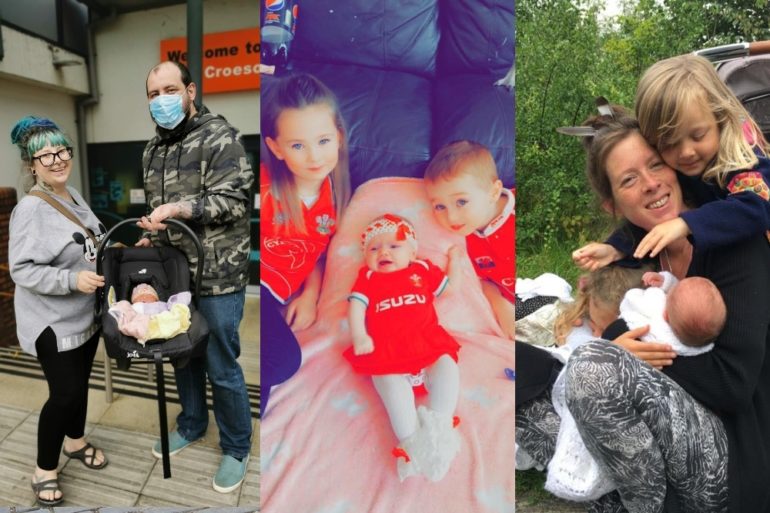Three mothers from Rhondda Cynon Taff discuss their experiences
GROWING, birthing and raising a baby is no mean feat but to do so in the middle of a global pandemic is nothing short of extraordinary.

Mothers have had to attend antenatal appointments alone and, in some cases, faced labour alone, then once at home, they receive little physical contact from health visitors, family or friends.
In a statement issued to The Cardiffian, Home Start Cymru said: “Parenting has been tough at the best of times but Covid has placed unprecedented pressures on families.”
For 39-year-old Kat Booker, her experience of pregnancy was nothing short of “horrific”.
Kat and her partner Scott found out they were pregnant with their daughter, Nancy, in February 2020 just weeks before the country was placed under lockdown on March 23.
Kat attended her first scan alone, due to Covid-19 restrictions, during which doctors noticed an issue.
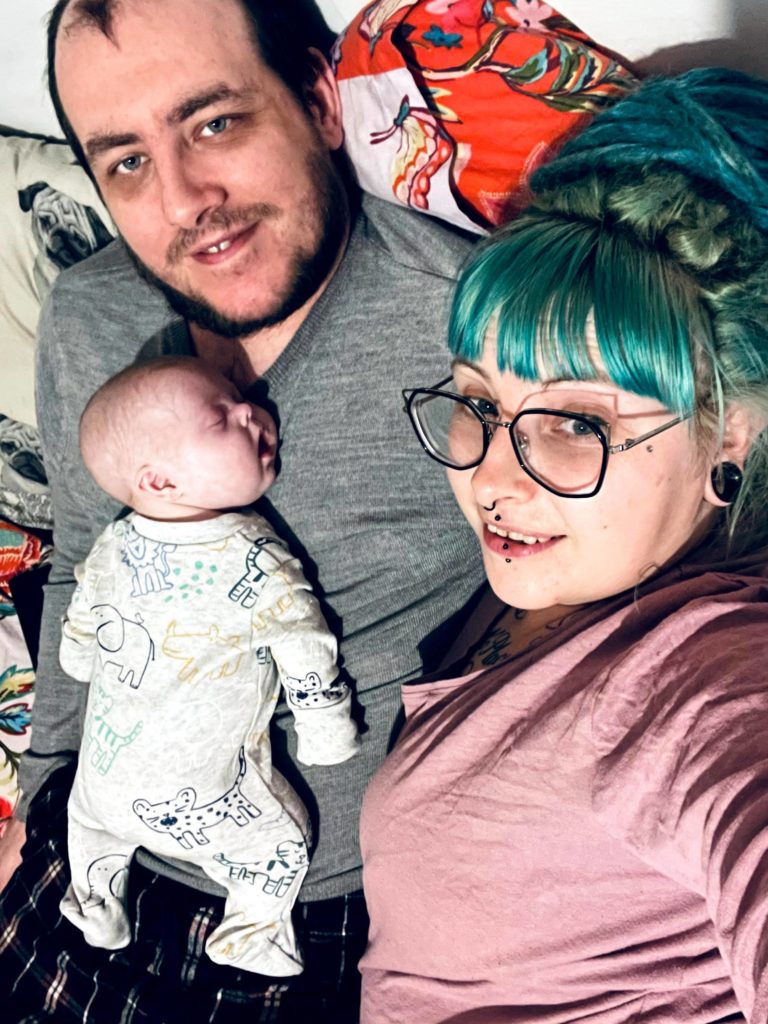
Both Kat and Scott attended the University Hospital of Wales where the mother-to-be underwent a Chorionic Villus Sampling (CVS), which is used for antenatal diagnosis of chromosomal or genetic disorders.
Following the test, the pair received a phone call informing them that unborn Nancy had Down Syndrome.
Kat then had to resume solo appointments which caused issues in the couple’s relationship.
“We’ve not bonded over the pregnancy at all because I felt like I had to deal with everything by myself and my partner just got to stay at home and not have to come and hear it all and not have the pressure,” said Kat.
The most difficult part of the antenatal appointments for Kat was the fact that she didn’t have her partner’s support when at every appointment, she was offered a termination.
“When you’ve just been told everything won’t be fine, it’s very hard,” she added.
Kat said that she understood that doctors had to provide a realistic expectation of parenthood however, she felt that she got bombarded with a list of potential issues rather than guidance on the practicalities of raising Nancy.
“The hospital was just like ‘the baby’s got Down’s that’s it, it’ll be really hard work for you’ and then there was nothing, no literature or anything, which would have been very helpful,” she said.
During what was meant to be one of the most exciting times of their lives, the pair were left feeling more anxious than eager.
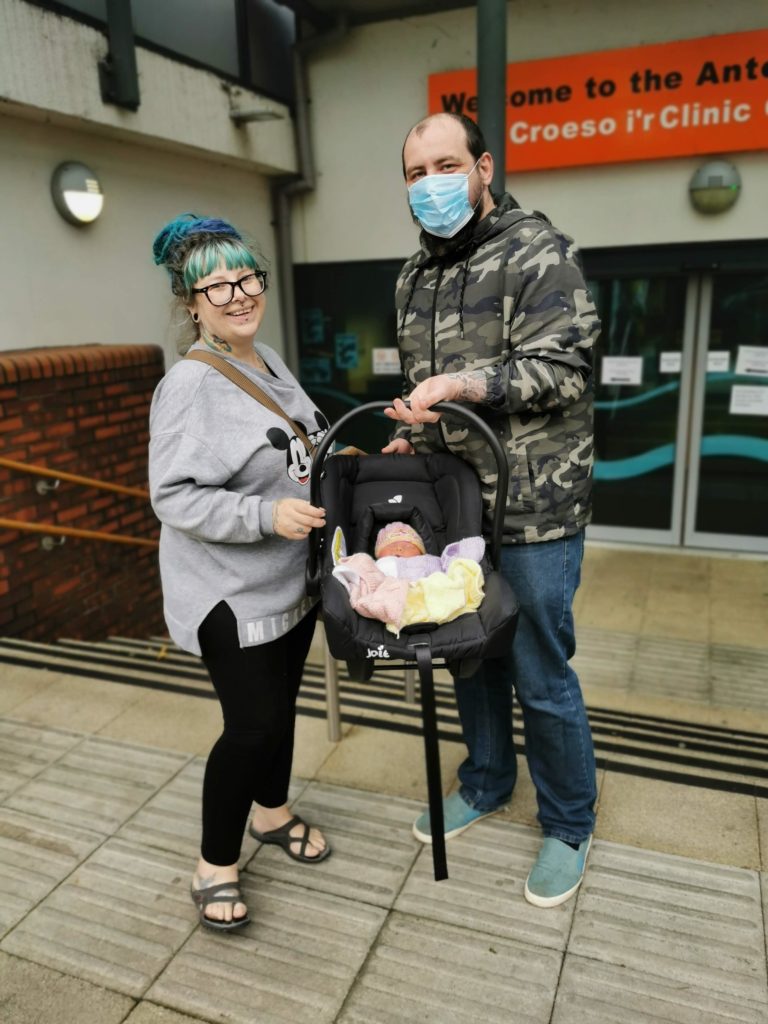
She added: “We didn’t get to enjoy it because every appointment was ‘you need to worry about this, and do you really think you could cope with a child with additional needs?’
“I’ve got my first scan photo, but I couldn’t look at it because they were like ‘this shows you that there’s something wrong’ so I just felt sick looking at it when I should have been enjoying it.”
Kat gave birth to Nancy in September 2020, unfortunately, the guidelines in place when Kat was induced meant her partner was unable to join her until just before the birth.
Only 20 minutes after Kat called her partner, their daughter had arrived, and Scott got to the hospital five minutes after she was born.
Baby Nancy is currently awaiting an operation on her heart.
Widely accepted as the most painful experience of a woman’s life, labour is undoubtedly gruelling but for some mothers, complications can make it an even harder experience.
Rebekah Ellis, from Taffs Well gave birth to her third child Aurora-Jane in November 2020.
Like Kat, Rebekah also checked into hospital alone as her partner wasn’t allowed to join her until she was taken to the delivery ward.
Following the birth of her previous two children, Rebekah haemorrhaged, so during her most recent labour, she was put on a drip to try to prevent the bleeding.
Due to the challenging nature of the birth, Rebekah’s partner was able to stay with her after the birth for more time than is advised under current restrictions.
“He was able to stay that extra bit longer than other fathers were, so it was lucky that I haemorrhage really,” said Rebekah.
Since returning home following the birth of Aurora-Jane, Rebekah has relied on the support of her mother who lives in the same block of flats.
“If I didn’t have my mum living so close, I think I would have struggled a lot more than I have,” she said.
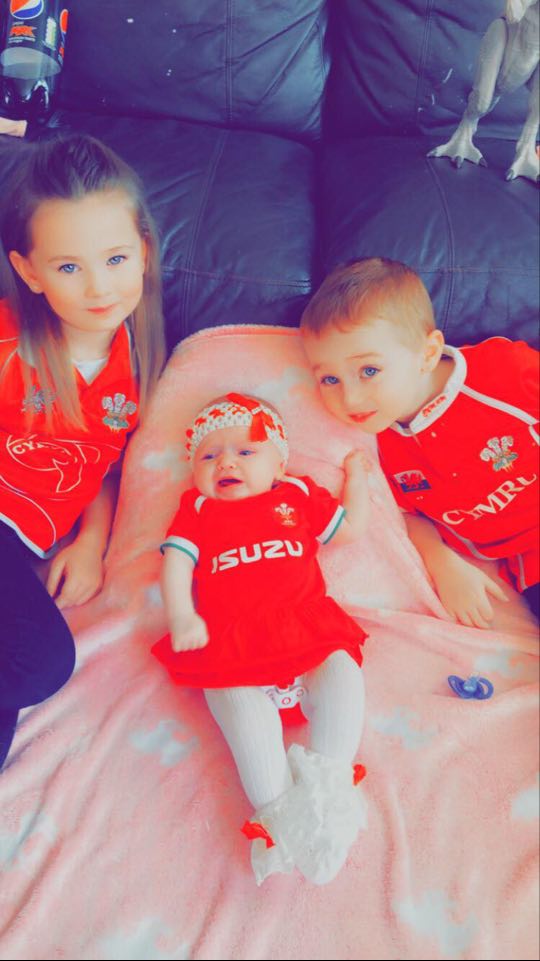
Since being born, Aurora-Jane has been monitored at home by a health visitor due to concerns about her weight.
However, when Alert Level 4 restrictions were brought forward on December 20, one of Aurora-Jane’s appointments was cancelled.
“It made it awkward because the baby went an extra two weeks without putting on weight and now, we’re trying to find out why it’s happening 15 weeks down the line.
“It does concern me a bit because if those appointments had been there in the first place, we would have picked it up sooner,” said Rebekah.
For some mothers the lack of face-to-face consultations with health visitors has been welcomed as an opportunity to be more independent.
Melissa Forster is a 40-year-old mother of three, living in Treforest. She gave birth to her youngest daughter, Gwenhwyfar in August 2020.
Melissa and her husband have found their postnatal experience in the pandemic preferable to that of their previous two children.
“I’ve enjoyed the lack of contact because I feel I’ve been trusted just to get on with it,” said Melissa.
The mother of three daughters, Melissa feels that the additional contact is sometimes unnecessary since she has already had a good amount of experience.
“I feel like I know what I’m doing now, and I don’t really want all the contact from the midwives and the health visitors, I just want to get on with it,” she added.
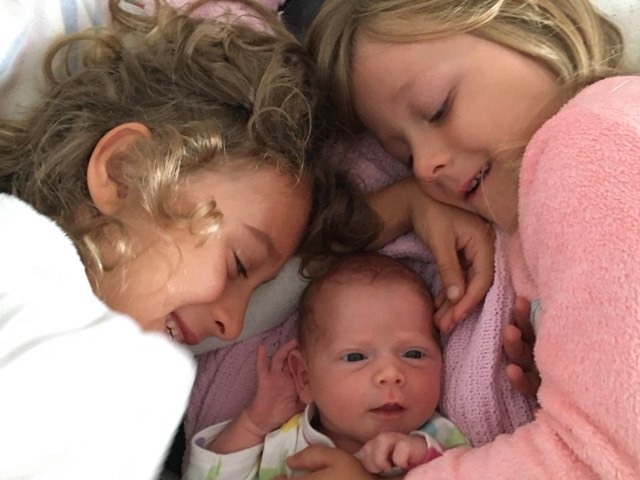
Following the birth of the couple’s oldest daughter, six-year-old Megan, Melissa felt there was an unnecessary focus on the baby’s weight which they haven’t had to experience with Gwen.
“She hasn’t been weighed incessantly, she hasn’t constantly had to go to the baby clinic, and I find that nice and calm and more relaxing because it feels like there’s less pressure.”
While having more time to bond has been a highlight for the family, the lockdown has restricted baby Gwen socially as she has never met another baby her age.
“We try and go walking as much as we can, but I haven’t been to one baby group this time around, and that’s something I really enjoyed doing with my older two children,” noted Melissa.
In addition to not seeing any other babies, Gwen has also been unable to meet her own grandparents.
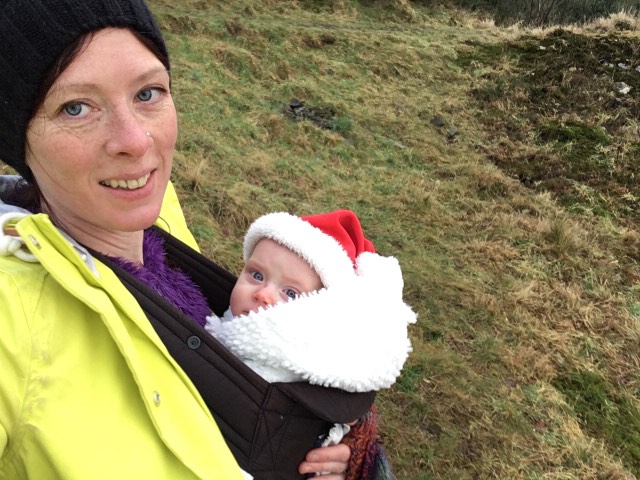
Melissa’s parents live in the Lake District and her father is vulnerable to the virus because of a heart condition.
He has recently received his first dose of the vaccine, but the family want to wait until he’s fully vaccinated, and travel restrictions are lifted before they make the journey.
“For my mum and dad not to have met my third child in person, that’s pretty hard,” Melissa said.
It usually takes a village to raise a child but faced with the added pressures and restrictions of a global pandemic, you may argue that it takes a whole city.
Home Start Cymru said: “Home is where it starts and to give children the best start in life families need a range of support, from professional services to community-based support in and around the home.”
The charity has a network of volunteers across Wales who are currently providing emotional and practical support via remote digital services for those who need it.
If you feel you would benefit from the charity’s services, you can ask for a referral via your midwife, health visitor or GP.


